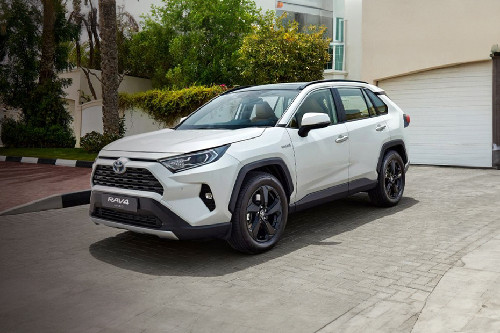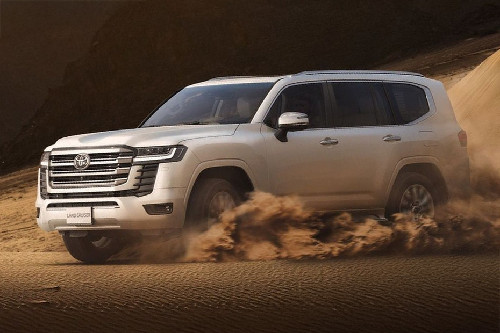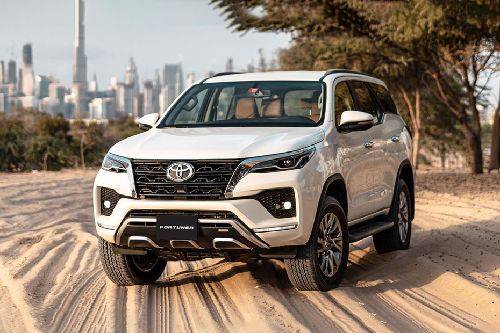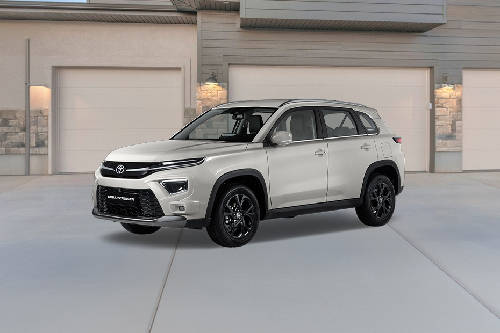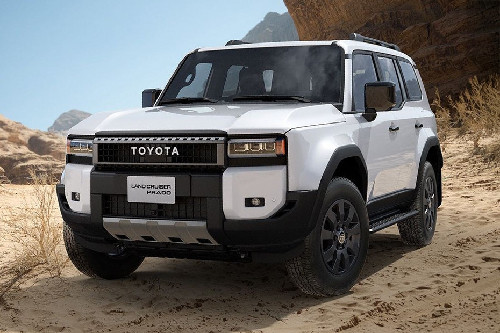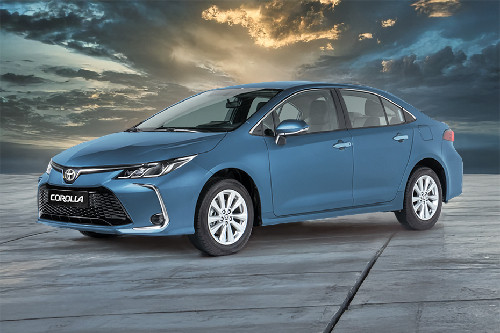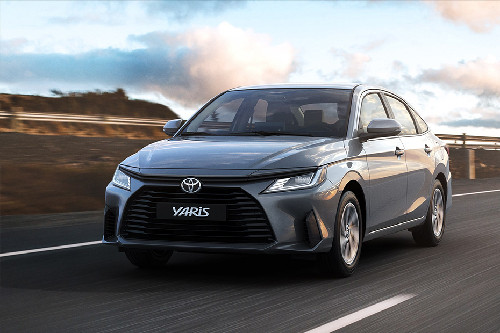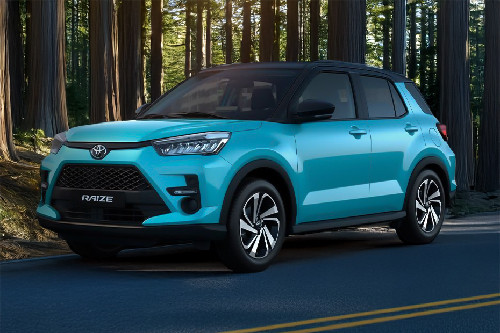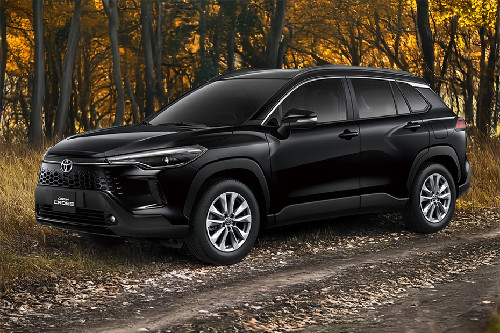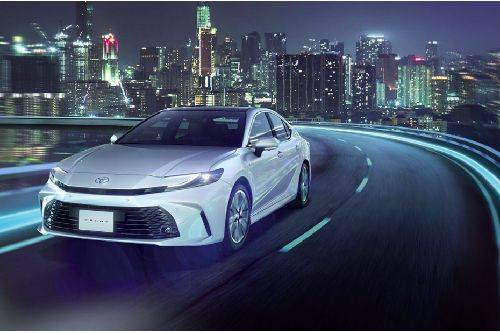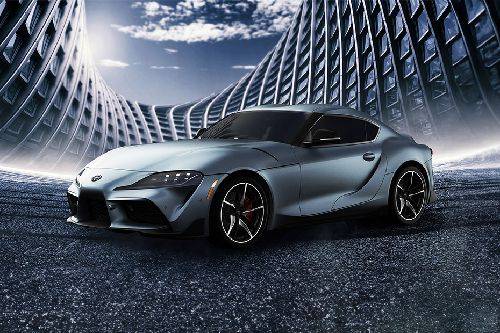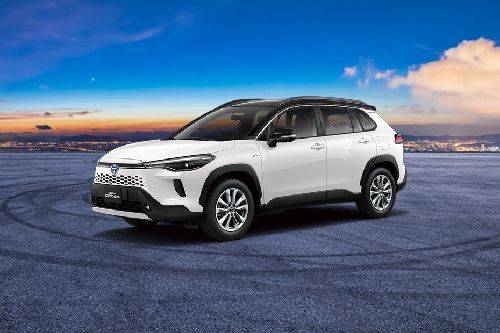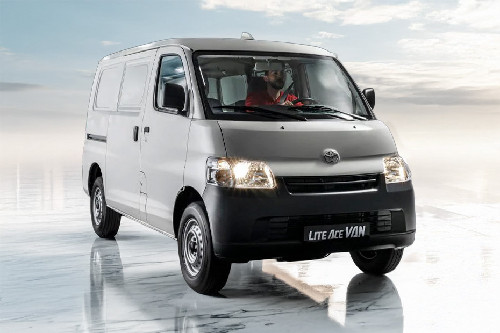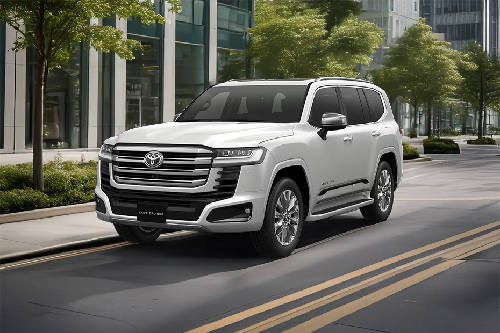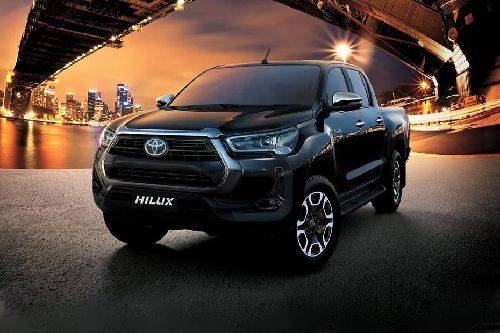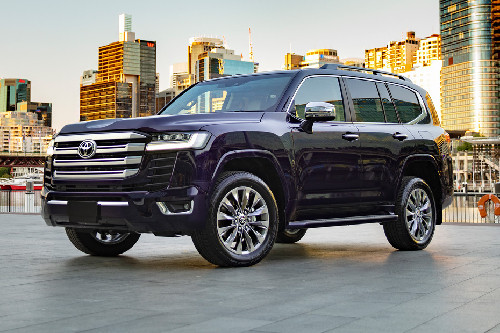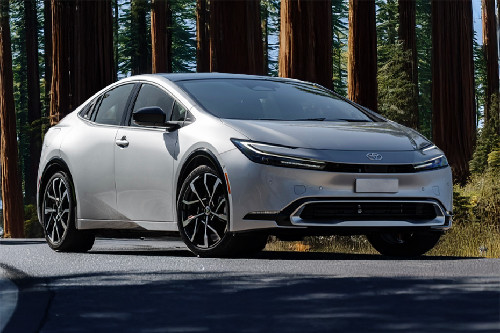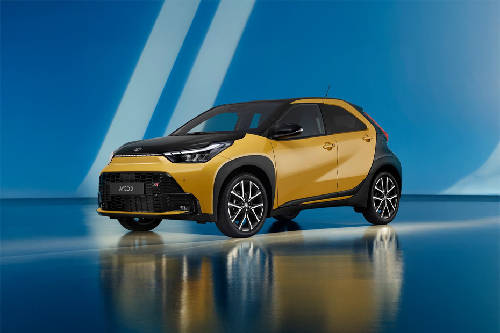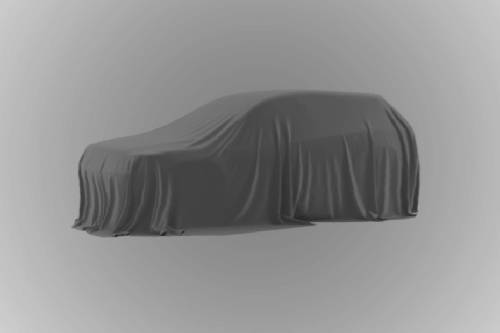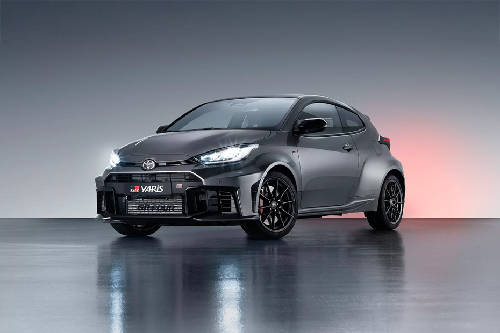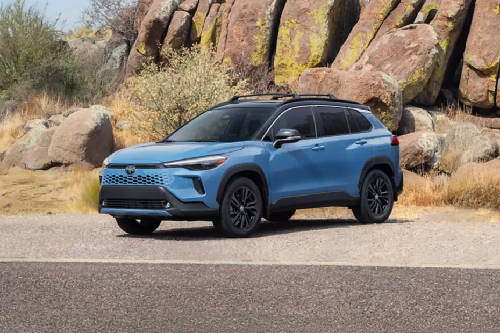Latest Updates in GCC-Spec Cars You Should Know Before Buying

Abu Dhabi: The Middle East automotive market has one key differentiator from the rest of the world, and this applies to the UAE too. It is quite common to come across the term GCC specs while in the market buying a new car. This is so usual that most of the buyers won’t consider it a big deal, but perhaps knowing it well would serve you well. It is not just another marketing buzzword, but is highly embedded in the automotive scene. We are part of the region where summer temperatures can go to a level that even metal can get roasted and humidity that just eats through car electronics.
KEY TAKEAWAYS
What are GCC-spec cars?
The GCC-spec cars are vehicles specifically designed and modified to handle and sustain in the Gulf region’s extreme climate, with improved cooling, air conditioning, and corrosion protection.Why are these special specs important in the UAE in 2025?
These specs are crucial for handling intense heat, humidity, and dusty conditions, and ensure better reliability and performance than non-GCC models.This makes GCC specs more than just a formality; rather, they’re essential for real-world performance here. GCC specs car models are treated specially by engineering for the Gulf’s harsh climate; cooling systems, air filters, and even paint quality are way different from any other market. As the Emirates is now getting high on the radar of global brands with heavy imports of regular and EVs, you must understand the GCC specs, which could help you pick the right car for a perfect ownership experience without avoiding frequent workshop visits.
What are GCC specs
Let's start with GCC, which stands for Gulf Cooperation Council. It's essentially the six countries that share the same brutal climate: UAE, Saudi Arabia, Kuwait, Oman, Qatar, and Bahrain. The GCC-spec cars are basically the same, like any Toyota, BMW, or Nissan that sells across all global markets. What the brands basically do is modify them specifically for the heat, dust, humidity, and desert driving that is common in these climatic conditions.
So they change things around the car, but not everything, but the important stuff. This includes cooling systems, air filters, batteries and undercarriage protection, etc. The purpose of all these changes is to meet the requirements and function in 50°C heat without failure or constant workshop visits.
Why is it important
This is enormously important for your car ownership experience. If you just say you buy a non-GCC car in the UAE, which is designed for mild weather. The cooling system won’t be able to handle the constant heat. The air conditioning works, but not necessarily at the ideal level. Similarly, the engine struggles. You hit traffic in July, and most likely your car starts overheating because it wasn't built for this.
|
What |
GCC-Spec Cars |
Non-GCC Cars |
|
Model Differences |
Same base model, regional adjustments |
Standard configuration |
|
Designed For |
GCC countries, extreme climate |
Global use |
|
Key Upgrades |
Cooling, AC, air/battery filters, corrosion |
None or less robust |
|
Main Risks |
Low if genuine |
Overheating, dust clogging, rusting |
|
How to Verify |
VIN check, Arabic labels, delivery checklist |
VIN decode, import records |
|
Ownership Costs (5 yrs) |
Higher upfront, lower maintenance, better resale |
Lower upfront, higher repairs, lower resale |
|
Radiator/Battery Spec |
Heavy-duty, desert-rated |
Standard |
|
Service Records |
GCC dealer history creates confidence |
May be incomplete |
|
Value Over 5 Years |
Holds value, fewer issues |
Value drops, more issues |
|
Bottom Line |
Smart buy for GCC conditions |
Short-term savings, long-term headaches |
Then comes the dust problem, a more real trouble than one might like to imagine. The regular air filters, the ones designed for US or European specs, get clogged up fast in the UAE, as there is sand literally everywhere. This basically means your engine efficiency drops massively, and visiting the workshop is quite often, which will cost you every single visit. That certainly is not the end; you also should consider the humidity. Coastal cities like Dubai and Abu Dhabi have salt in the air, and the non-GCC cars don't have the corrosion protection, so the metal parts start rusting faster. It is visible easily, cars that look absolutely beaten in less than three years, and the reason is that they simply aren’t designed for this environment. Therefore, cars customised for GCC-spec address all of this upfront.
The major aspects
Cooling Systems: GCC cars have bigger radiators and more powerful fans. The engine oil cooler is stronger, and the transmission oil cooler as well. It is worth noting that these are not just small upgrades; they are significant ones. The cooling system in a GCC car can handle 50°C+ temperatures without the engine running hot, a basic but important necessity.
Air Conditioning: The AC system is more robust, equipped with a bigger compressor and superior insulation on refrigerant lines. The cabin cools faster and stays cool even when you're stuck in traffic with the sun beating down. This won’t be the case in a non-GCC car.
Air Filters: GCC cars have highly improved filtration systems designed for sand and dust. They trap particles better and don’t clog as fast. You get cleaner air in the cabin and cleaner air to the engine. This extends engine life, which is most crucial because the engine is literally the heart of any car.
Batteries: GCC-spec cars use 950Cold Cranking Amps batteries, while US-spec cars typically have 750 CCA. That extra power makes sure they handle the heat better and start reliably even when temperatures are extreme.
Corrosion Protection: another key highlight of the GCC cars, which are offered with an extra protective layer on the undercarriage and body. This fights rust from humidity and salt air. It may not be immediate, but over five years, this makes a real difference.
Engine Management: The software is calibrated differently, thermostat settings, fan kick-in temperatures, and knock control, all tuned to Gulf conditions. A US-spec car's engine management is tuned for cooler climates, and so in intense heat, it runs less efficiently.
How to spot a real GCC-spec Car
Even while there are enough safeguards, knowing helps one to identify the right car with specs. You should consider the points below to get a reliable deal.
Check the VIN: The Vehicle Identification Number is 17 digits. For GCC cars, look at the first characters.
Look for Arabic: GCC cars have Arabic text in specific places like side mirrors, door jambs, and the driver's sun visor safety sticker. If you don’t find them, it is easy to know.
Request the Delivery Checklist: For used cars made between 2018 and 2025, ask for the original GCC delivery checklist. This document details the specific modifications made for the region. If the seller doesn't have it, then it's a red flag.
Check the Compliance Plate: There's usually a factory compliance plate at the driver's door jamb, firewall in the engine compartment, or glovebox documentation. For GCC cars, this plate includes the GCC standard code and often a distinctive triangle mark. This plate is proof.
Radiator Size: GCC cars have visibly larger radiators than non-GCC versions. If you can look at the engine compartment, the radiator should be bigger. This may not be the perfect test, but something you must verify.
Service Records: Request service history as GCC-spec vehicles have been serviced at regional dealers who specialise in them. The non-GCC cars often bounce around because regular mechanics don't know them as well.
Here’s a clear, practical table to verify GCC-spec and compare 5-year ownership costs:
|
Verification Method |
Priority |
How to Check |
|
Arabic Labels |
Highest |
Check labels on door/chassis |
|
VIN Verification |
High |
Dealer or online VIN check |
|
Delivery Checklist |
High |
Ask for GCC-specific paperwork |
|
Compliance Plate |
Medium |
Inspect plate for GCC marking |
|
Service Records |
Medium |
Request GCC dealer history |
|
Radiator Inspection |
Medium |
Look for desert-grade radiator |
GCC vs American Specs
We all know that most imported cars in the UAE are American-spec. And dealers bring them in because they're cheaper to buy in the US. But you should consider that American-spec cars cost 10-15% less than GCC versions. But they are not the most ideal, sooner or later, you encounter issues like overheating, AC struggles, filters with dust and rusting sooner. This is not just an inconvenience and damage, but a huge cost to repair.
In less than five years, the real price bargain starts to vanish, and your cost of maintenance, repair and running shoots up dramatically. GCC-spec cars hold their value better. They resell more easily. When it's time to sell, you're not competing against buyer doubt.
Is the premium worth
Considering a GCC-spec means they are approximately 10-15% more upfront. If a car is AED 100,000 in US-spec, the GCC version might be AED 110,000-115,000. So you’re paying a premium, but study the overall deal before you make a decision. Take the following example.
US-Spec car:
- Initial price: AED 100,000
- Extra maintenance (more AC repairs, filter changes, service complexity): AED 5,000-8,000
- Extra fuel costs (less efficient cooling means less efficient engine): AED 3,000-5,000
- Resale value: AED 50,000-60,000
- Total cost: AED 48,000-55,000
GCC-Spec car:
- Initial price: AED 115,000
- Maintenance (less frequent, more predictable): AED 2,000-3,000
- Fuel costs (better efficiency): AED 1,000-2,000
- Resale value: AED 60,000-70,000 (better market perception)
- Total cost: AED 48,000-56,000
Both of them are nearly the same in terms of price, but in the GCC car, you get an extra advantage of greater reliability and lower running cost, needs fewer repairs, and is easier to sell. So, essentially you’re not paying a premium, rather it is a fair value.
What is new in 2025
The battery technology has improved, and modern GCC-spec cars are now equipped with heat-resistant batteries rated for 60°C and higher. Older cars weren't rated that high. Similarly, the AC efficiency has gotten better, so the new compressors have become smarter. They maintain temperature better without overworking.
Air filtration is more advanced, with multi-stage filters that capture finer dust particles while maintaining airflow. As far as corrosion protection coatings are concerned, they are much improved, as manufacturers have learned from five years of cars on UAE roads. The software updates are more frequent nowadays, and manufacturers now push over-the-air updates that enhance engine management for actual climate data. Your car gets better at handling heat as it ages, not worse.
Conclusion
If you're buying a car to drive in the UAE, buy GCC-spec. This is non-negotiable. It is necessary and worth the price for a peaceful, delightful and comfortable ownership experience in the Emirates.
Toyota Car Models
Automotive News and Reviews
- Latest
- Popular
You might also be interested in
- News
- Featured Stories
Featured Car
- Latest
- Upcoming
- Popular


